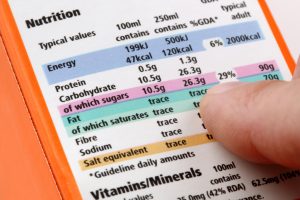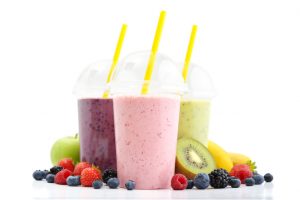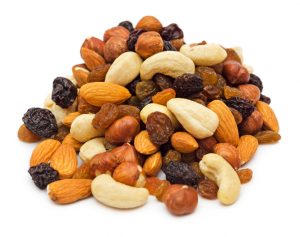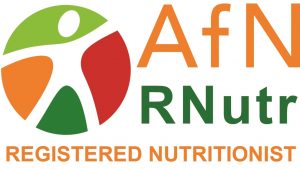Is sugar reduction a challenge when you travel on business?

Whilst working and travelling, we often pick up sustenance in cafes or ‘on the go’. It can difficult to ensure that we are getting a healthy diet and especially hard to keep track of our sugar intake. So it was reassuring to learn last year that countries around the world begun sugar reduction policies in line with the World Health Organisation recommended guidelines. This included Public Health England who called for a 20% cut in sugar eaten in foods bought from cafes and to take home, with a 5% cut due to happen in the first year and the final goal to be achieved by 2020.
Unfortunately, there are only a few instances where the initial 5% sugar reduction has been achieved. Breakfast cereals and yoghurts are a high spot, but chocolate and biscuits are unchanged and some puddings have got sweeter. Chocolate bars have been reduced in size covertly lowering the sugar content per item.
The UK Sugary Drinks Levy, brought in earlier this year, has induced drinks companies to change their recipes and include sweeteners to reduce sugar content in many products. The impact is expected to be significant for those with a fizzy drink habit and will reduce sugar consumption by around 30,000 tons per year, although social media contains many complaints about some drinks being less tasty. Over 30 countries hope to have a sugar tax by the end of 2018.
Some food and drink readily available to us when travelling for work can appear fairly healthy, so it’s annoying if we are inadvertently exceeding our desired sugar intake.
Drinks Are A Sugary Minefield
 We know that water is our safest option, but what if we want something with a little more taste.
We know that water is our safest option, but what if we want something with a little more taste.
A regular 100% fruit juice is refreshing and seems healthy, but the free sugar content is high.
A meagre 100ml juice contains:
Orange juice 8g sugar
Apple juice 10g sugar
Mango juice 8g sugar
Pineapple juice 7g sugar
A regular fruit juice glass holds almost 300ml, so a glass of apple juice contains around 6 teaspoons of free sugar.
If we haven’t been eating much fruit and vegetables and want a boost of antioxidants, then we could be forgiven for thinking that some of the bright red or green smoothies will give us the phytochemical kick we require. But again, the sugar content is massive.
One green Invigorate Super Smoothie with seeds and botanicals has 11g sugar/100ml and a purple Pomegranate and blueberry smoothie with Acai has a whopping 13g/100ml – almost 8 teaspoons of sugar in a glass! We could get our entire days World Health Organization recommended sugar allowance in one glass of fruit smoothie. The fresh plastic cup varieties are even larger!
How Can We Avoid Sugar Overload?
 Generally, if we stick to simple foods with simple ingredients, we know what we’re getting. We are safe with a sandwich, a salad, or a bit of sushi.
Generally, if we stick to simple foods with simple ingredients, we know what we’re getting. We are safe with a sandwich, a salad, or a bit of sushi.
Always carry snacks, but beware of the cookie disguised as a muesli bar. Oat and honey type bars can have almost 12g sugar per portion.
A 25g serve of unsalted nuts and raisins is a better choice. It contains about 6.4g sugar, but this comes with unsaturated oils, fibre and lots more useful nutrients.
Whole fruit is sweet, but the cell walls and fibres slow down sugar absorption, give us a feeling of fullness and provide valuable vitamins and minerals.
Finally, always check the label, sugar content should be there. Look out for ‘free sugars’ such as honey, syrups, fruit juices and fruit juice concentrates, as well as added fructose, glucose syrup and sucrose.
© 2018 Executive Travel Vitality




























